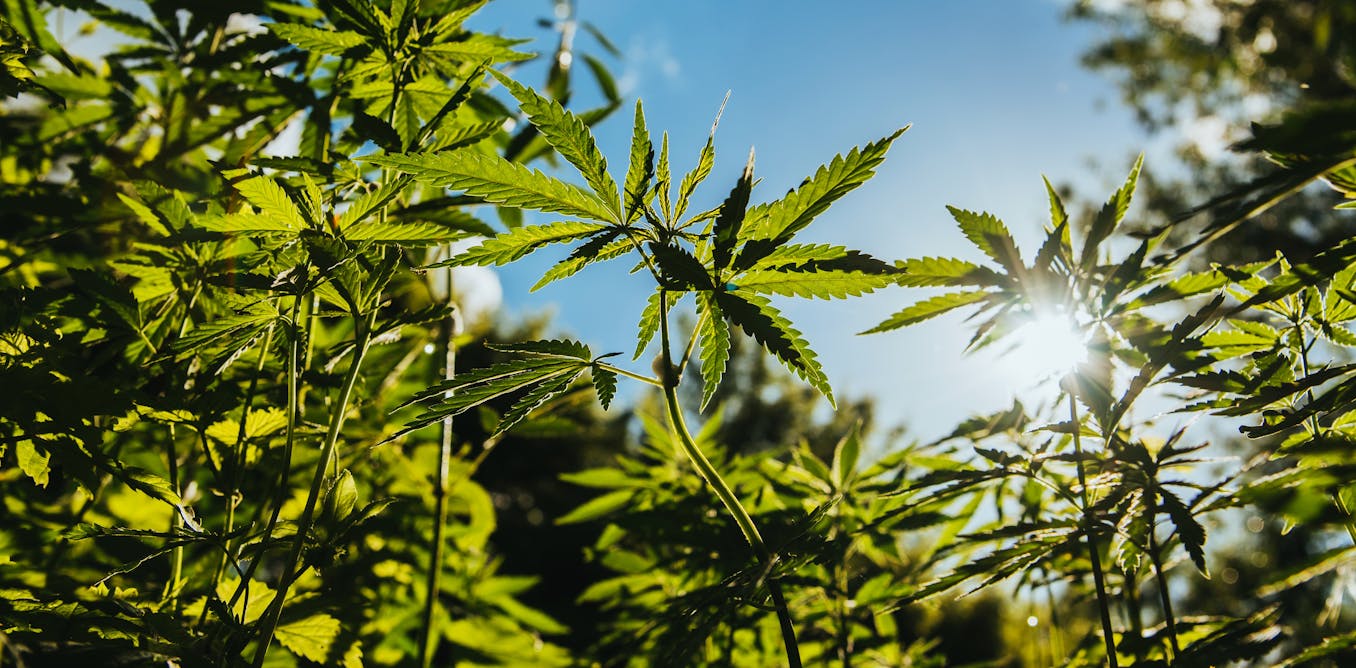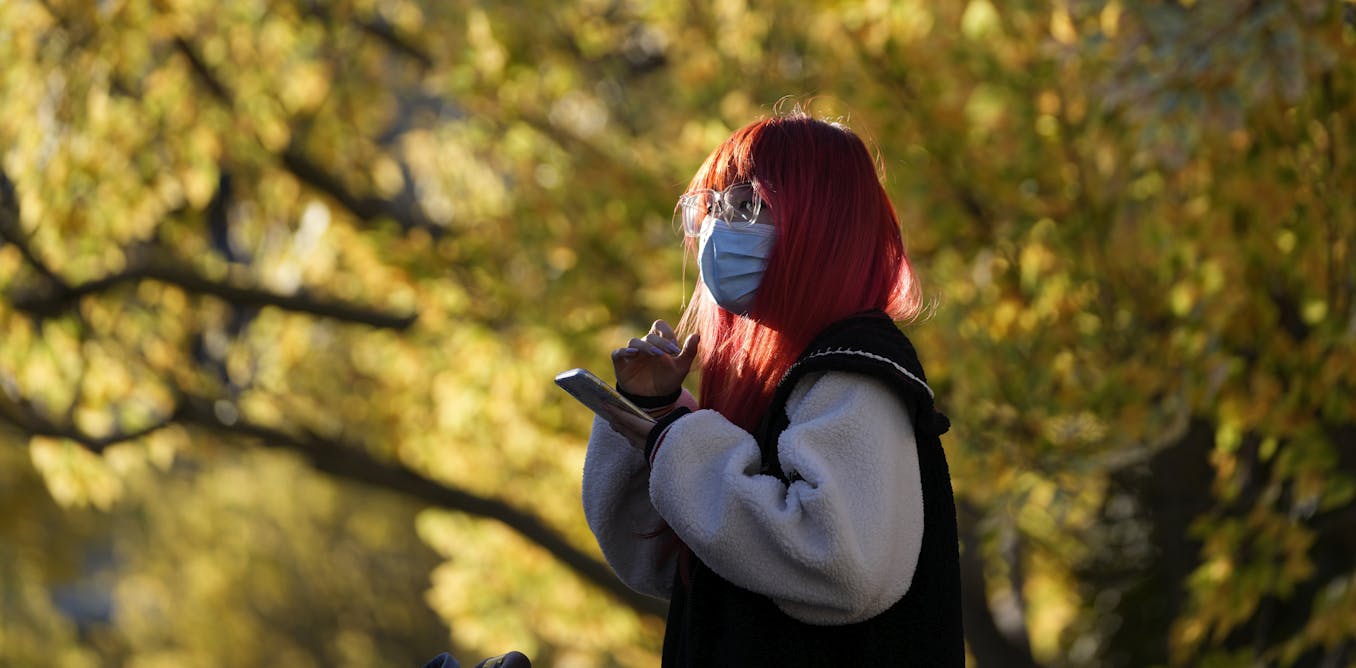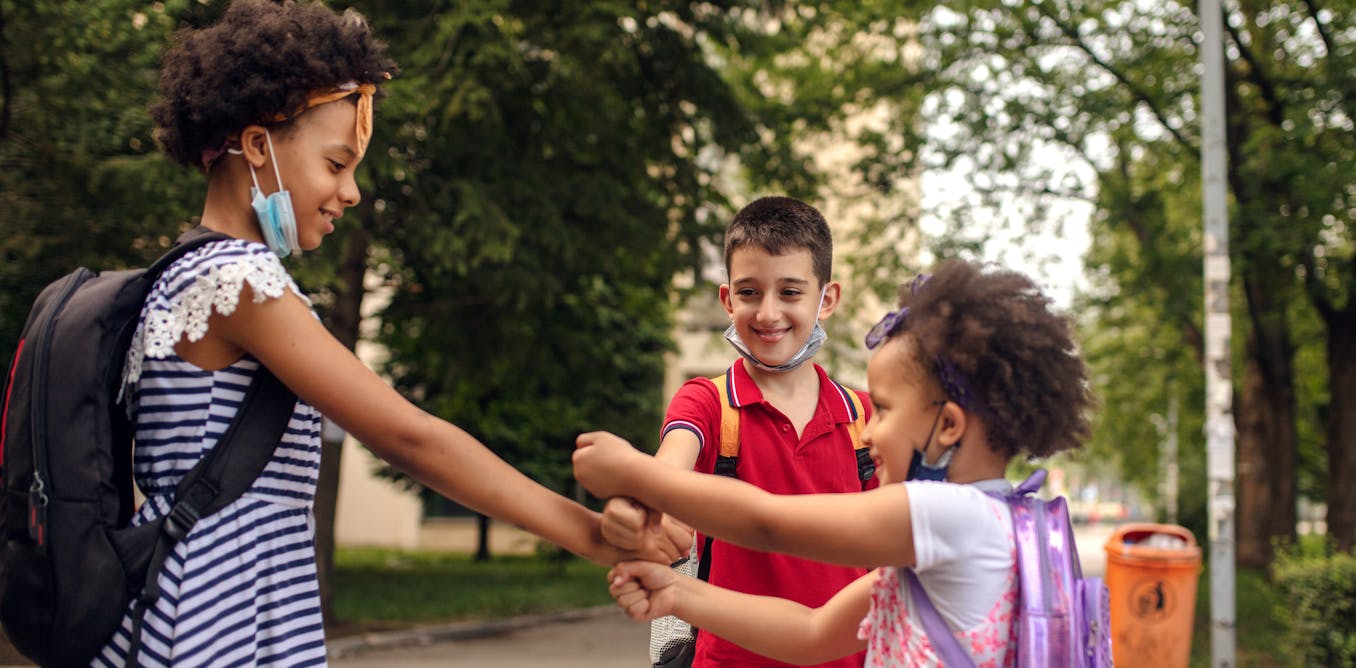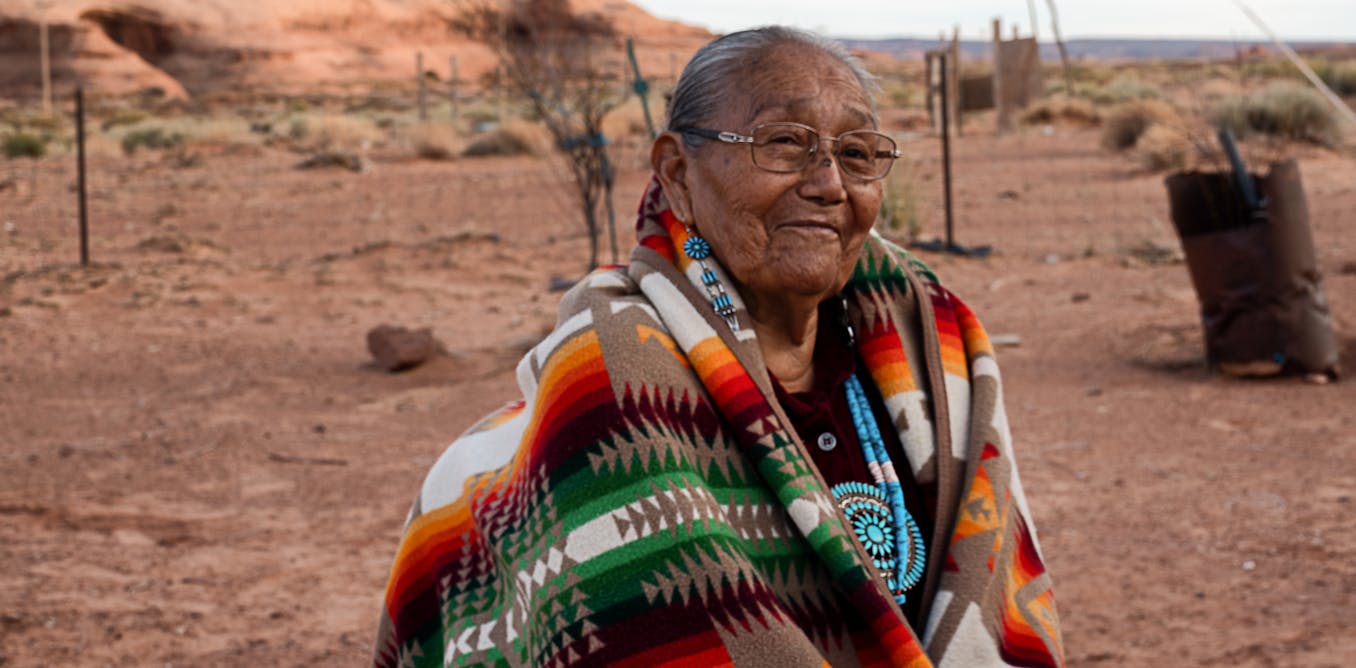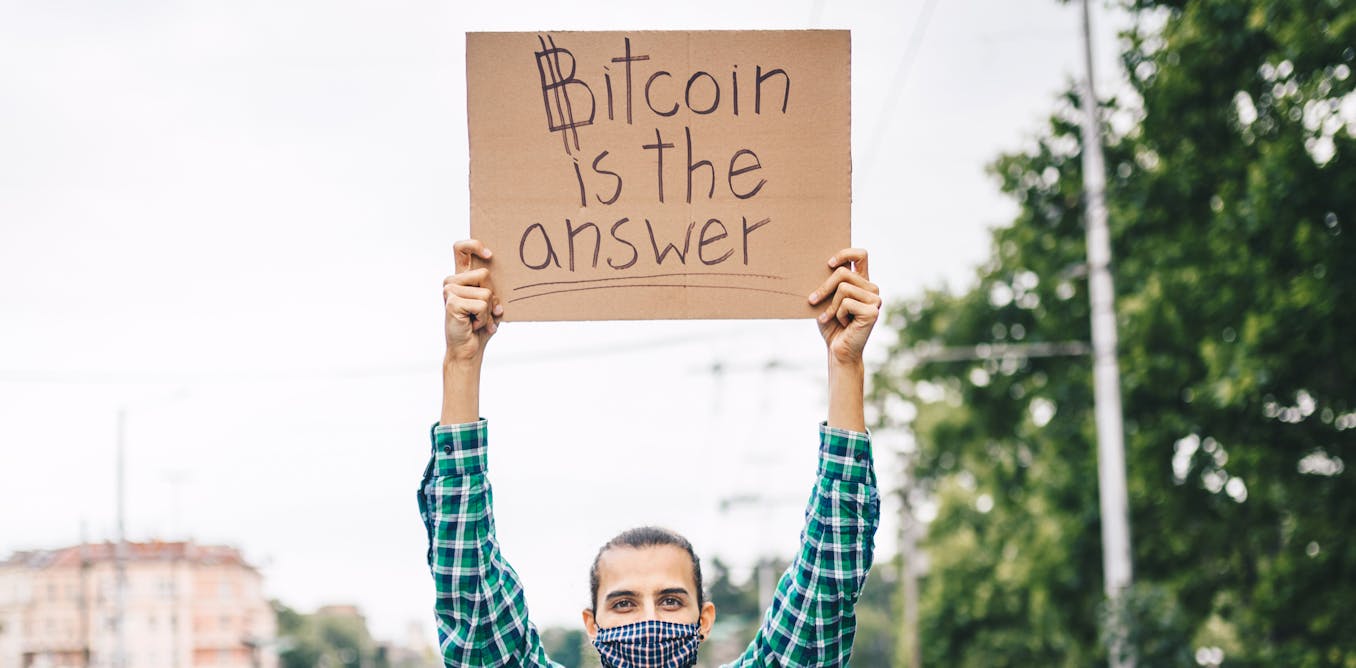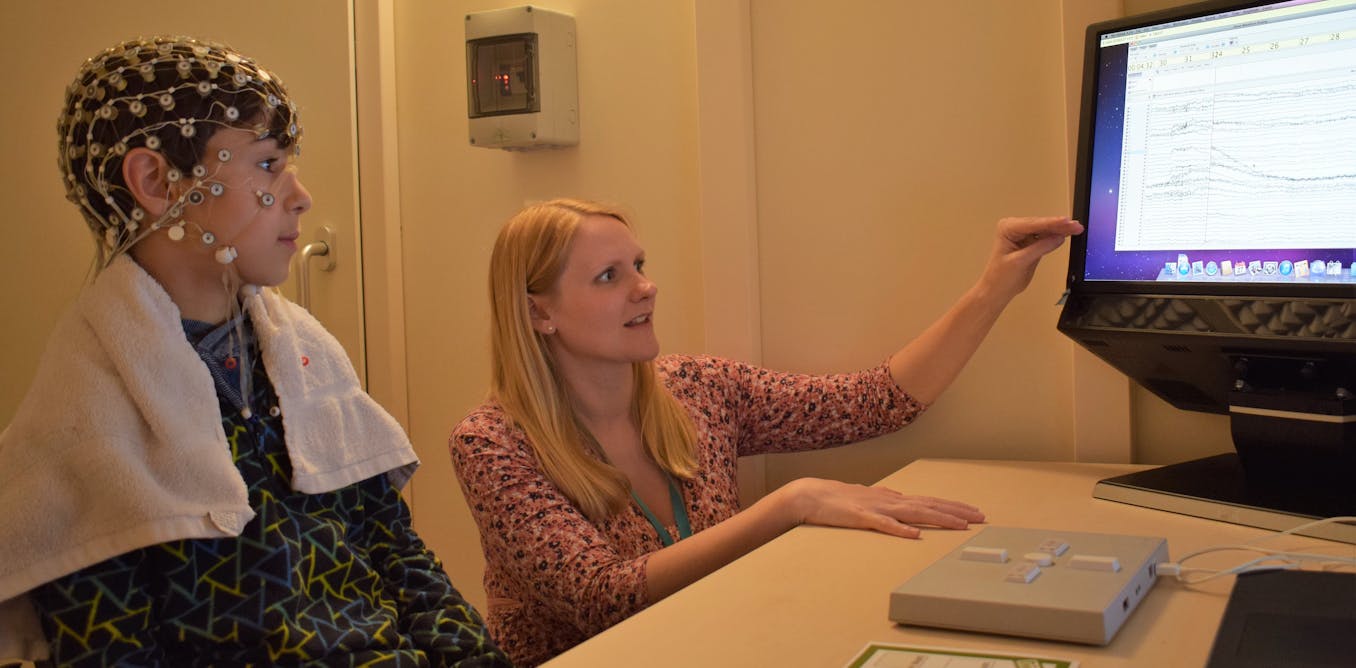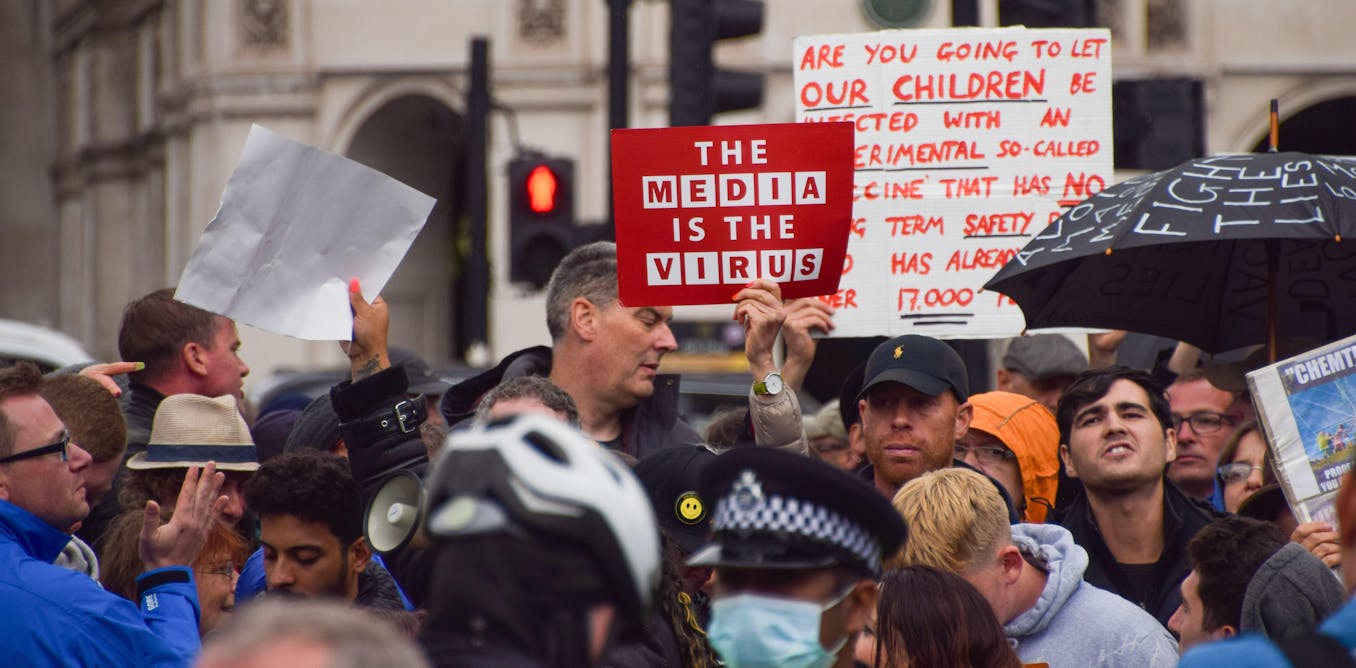Ten years to 1.5°C: how climate anxiety is affecting young people around the world – podcast
Experts explain the latest evidence on eco-anxiety in The Conversation Weekly.
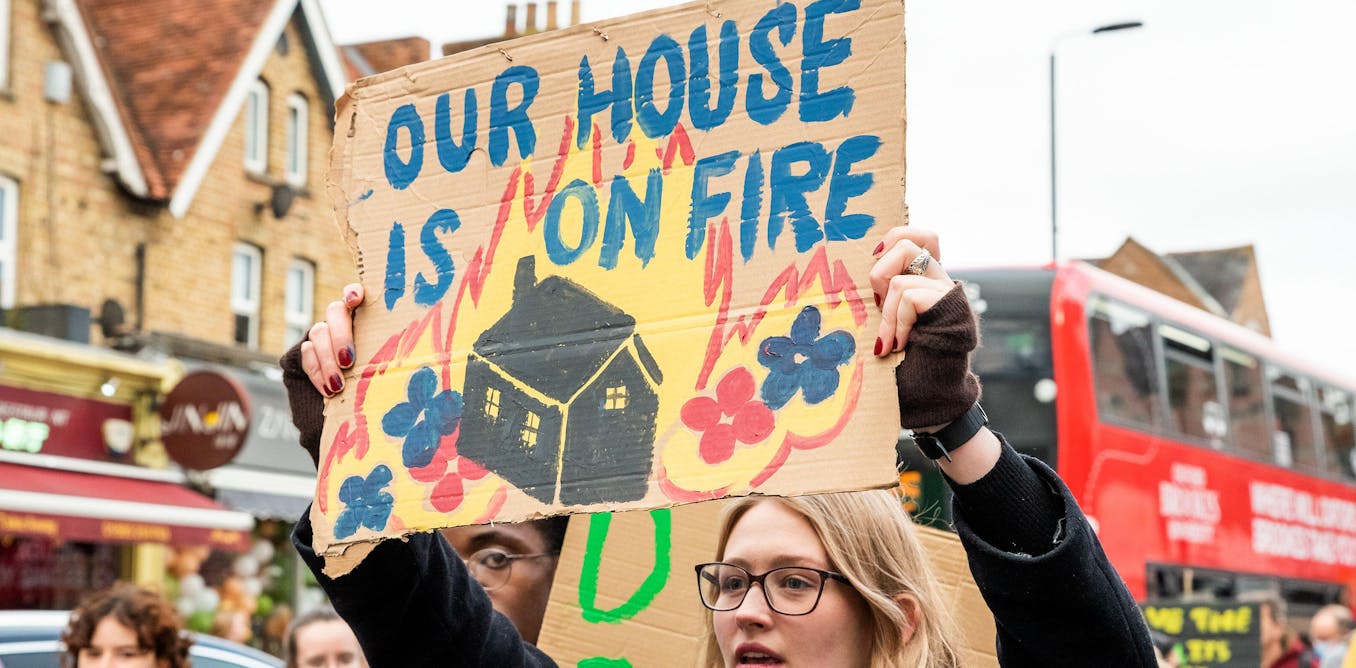
In this episode of The Conversation Weekly podcast, we speak to a climate scientist who just updated a clock he created that counts down the seconds until the world reaches 1.5°C of global warming. And we hear from experts about the latest evidence on climate anxiety – what it is, how common it is and what to do about it.
A core aspiration of the 2015 Paris agreement on climate change was to keep the world within 1.5°C of global warming above pre-industrial levels. So how far away is that crucial point? After Paris, Damon Matthews created the climate clock, which translates the latest carbon emissions data into a countdown.
“We have a little more than ten years until we get to 1.5°C,” says Matthews, a professor and research chair in climate science and sustainability at Concordia University in Canada. When carbon emissions dipped in 2020 because of the pandemic, this added a year to the clock. But with emissions already rebounding in 2021, that extra time is gone. An emissions dip for one year “by itself buys almost nothing,” says Matthews. “In order to really add time to the clock, we need to shift the long-term trend downwards very considerably.”
Read more: Climate clock reset shows the world is one year closer to 1.5 C warming threshold
The climate clock helps put the urgency of the climate crisis into perspective. But the future it’s counting down to can be deeply frightening, particularly to young people. New research is emerging about the global scale of this climate anxiety, or eco-anxiety, and the way it affects people – and we’ve spoken to some of the experts that study it for this episode.
According to Caroline Hickman, lecturer in social policy sciences at the University of Bath in England, climate anxiety is “initially an emotional response” to the threat of environmental and ecological disaster, but it can go much further. “It impacts on the way we think about relationships and about our futures,” Hickman says.
But Hickman, who is also a practising psychotherapist, stressed that climate anxiety isn’t something that can be diagnosed and she wouldn’t want it to be. “As soon as you start framing it as a mental illness,” she says, “then you start thinking of it as a pathology and as something that needs to be fixed or cured. In fact, I would argue the opposite is true.”
Hickman just led a team of nine researchers to analyse a survey of 10,000 children in ten countries about eco-anxiety. The results, which are yet to be peer-reviewed or published, showed that 67% of respondents globally said they felt sad, afraid and anxious about climate change. But Hickman told us that the data for the Philippines suggests that “91% of children and young people are feeling anxious and afraid, and it’s 74% with young people in India”.
In a separate study of university students in Australia and New Zealand, Teaghan Hogg, a PhD candidate at the University of Canberra in Australia, found that about two-thirds of participants experienced climate anxiety some of the time. She broke down people’s experiences of eco-anxiety into four main features, including rumination and physical symptoms, which she told us “were distinct from symptoms of depression, anxiety and stress”.
Meanwhile, Charles Ogunbode, assistant professor in applied psychology at the University of Nottingham in England, was also keen to get a better global understanding of eco-anxiety. Working with a consortium of colleagues around the world on a separate study, he found high levels of concern about climate change was “linked with increased rates of insomnia symptoms, as well as poor self-rated mental health”.
Ogunbode says that while climate anxiety does have a psychological effect on people, “the solution is not to treat it like a mental health issue, it’s to address the environmental stressor that’s given rise to this mental health problem”.
To end this episode, Fabrice Rousselot, editor at The Conversation in France, gives us some recommended reading.
This episode of The Conversation Weekly was produced by Mend Mariwany and Gemma Ware, with sound design by Eloise Stevens. Our theme music is by Neeta Sarl. You can find us on Twitter @TC_Audio, on Instagram at theconversationdotcom or via email. You can also sign up to The Conversation’s free daily email here.
Newsclips in this episode from euronews, Sky News, Al Jazeera English, BBC News, WION, Arirang News, CBS News and ABC News.
You can listen to The Conversation Weekly via any of the apps listed above, download it directly via our RSS feed, or find out how else to listen here.
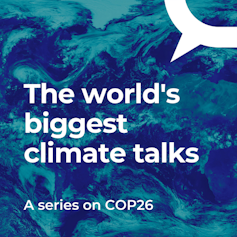
This story is part of The Conversation’s coverage on COP26, the Glasgow climate conference, by experts from around the world.
Amid a rising tide of climate news and stories, The Conversation is here to clear the air and make sure you get information you can trust. More.
What's Your Reaction?




















